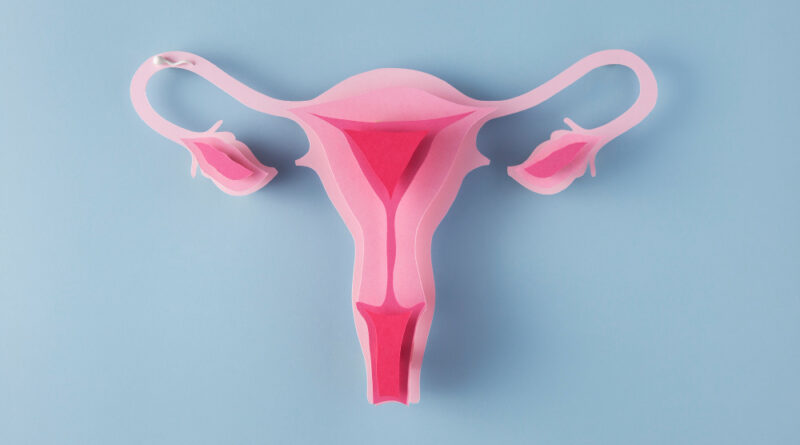Tubal Blockage Factor (Fallopian Tubes) Infertility: Ayurvedic Treatment in Bengaluru
Women usually ovulate once a month. The egg stays in the fallopian tube for 12 to 24 hours after the ovary releases it. If it gets fertilized, it sticks to the endometrium in the uterus. If not, it is lost along with the endometrium when a woman has her period.
Usually, the egg is fertilized in the tube that leads to the uterus. Because of this, fertilization happens in the fallopian tube, which also helps the egg get from the ovary to the uterus. But remember that a fertilized egg does not grow in the fallopian tube. In the uterus, a fertilized egg grows.
Keep reading: Fallopian Tube Blockages and Ayurvedic Treatment
But a fertilized egg can also start to grow in the fallopian tube if it gets fertilized but doesn’t make it to the uterus. If the tube is broken or clogged, this can happen. If an egg can be fertilized but gets stuck in a damaged or blocked tube, it will start to grow there if it can be fertilized.
If the egg starts to grow in the fallopian tube, it is very bad and needs to be treated right away. An ectopic pregnancy is this kind of pregnancy. Infertility can also be caused by a tube that is blocked or broken.
Infertility as a result of tube damage or blockage
If there is a blockage or damage in the tube, it can make it hard for the egg to get to the uterus. The blockage can also keep sperm from reaching the egg, so the egg won’t get fertilized.
Every woman has two ovaries and two tubes that carry eggs to the womb. If only one of your fallopian tubes is damaged or blocked, you can still get pregnant from the other one. But infertility can happen if both fallopian tubes are blocked.
Read on: Tubal Factor Infertility Treatment
Tubal Blockage Reasons
There are a few things that can lead to a blockage in the tubes. These are:
- Fibroids: Fibroids are noncancerous growths of tissue that can form in or near the fallopian tubes. They can also form on or near the ovaries and stop blood from getting to the uterus. Fibroids don’t always make it hard to have children. In some cases, they can make it hard to have children. Depending on how big and where the fibroids are, many women with fibroids can give birth without any problems.
- Pelvic Inflammatory Disease (PID): Chlamydia and gonorrhoea are the most common bacteria that cause pelvic inflammatory disease. Bacteria can get into the reproductive tract and cause the tissue to scar and swell. If PID gets to the fallopian tube, scarring and swelling can cause the tube to become blocked or damaged.
- Endometriosis: Tissue that looks like endometrium can grow in places other than the uterus. The endometrium is made of tissue from the endometrium.
Endometrial tissue stores blood and breaks and bleeds during periods, just like endometrial-like tissue that grows outside the uterus. When this tissue grows in the fallopian tubes, it can get in the way. - Sexually transmitted diseases (STDs): If you don’t get treatment for an STD, it could make you unable to have children. If the infection isn’t taken care of, it could spread to the fallopian tube and hurt it.
- Previous Abdominal Surgery: Damage to the fallopian tubes can also be caused by abdominal surgery or an unsafe abortion.
- Previous Ectopic Pregnancy: In an ectopic (tubal) pregnancy, a fertilized egg gets stuck in the fallopian tube. Even after the ectopic pregnancy is taken care of, the blockage or damage could still be there.
- Hydrosalpinx: Fluid can get stuck in the fallopian tube for some reason. This stuck fluid can stop the tube from working. This kind of clog in the fallopian tubes is called hydrosalpinx.
Tubal Blockage Symptoms
Most of the time, there are no signs of a tubal blockage. In a case of hydrosalpinx, there may be some signs. When a woman has hydrosalpinx, she might have pain in her lower abdomen. Because of the fluid that builds up in the tube, this pain could be felt.
Treatment of Tubal Blockage
Most of the time, modern medicine uses surgery to fix a tubal blockage. If it’s hard for a woman to get pregnant on her own, she can also get ready for intrauterine insemination or in vitro fertilization. Ayurveda can also be used to treat tubal blockage in a natural way.
You will be Interested on : How To Treat A Blocked Fallopian Tube With Ayurveda
Treatment of Fallopian Tube Blockage Without Surgery
In Ayurveda, you can get treatment for a blocked fallopian tube without having surgery. Ayurvedic doctors use herbs, therapies, changes to a person’s diet, and yoga or meditation to treat their patients.
Uttar Basti therapy is a powerful treatment for blocked fallopian tubes and other problems with the female reproductive system. The doctor puts medicine into the uterus by putting a thin tube through the vagina and into the uterus. The blockage and damage in the fallopian tube are healed by the medicine in this mixture.
Herbs are also used to help people get pregnant and for other health reasons. You can make an appointment at Khokar Clinic if you are having trouble getting pregnant.
To get a free consultation Call or Whatsapp +91 9995202100
Fill up online consultation form https://www.khokardispensary.com/quick-online-consultation/
Related Links : sexologist in malapuram, ayurveda infertility treatment london, ayurveda infertility treatment wolverhampton, sexologist in koorkenchery, ayurveda infertility treatment san francisco, sexologist in ettumanoor, best ayurvedic sexologist in manikonda, ayurveda infertility treatment hyderabad, sexologist in al farwaniyah, gandhinagarfemaleinfertility, ayurveda infertility treatment bradfort, sexologist in al jubail, sexologist in chittur, ayurveda infertility treatment gujarat rajkot, sexologist in edappal, coimbatorefemaleinfertility, sexologist in nizwa, manikondafemaleinfertility, sexologist in nilambur, sexologist in sohar.
Originally posted 2023-03-20 08:51:49.





